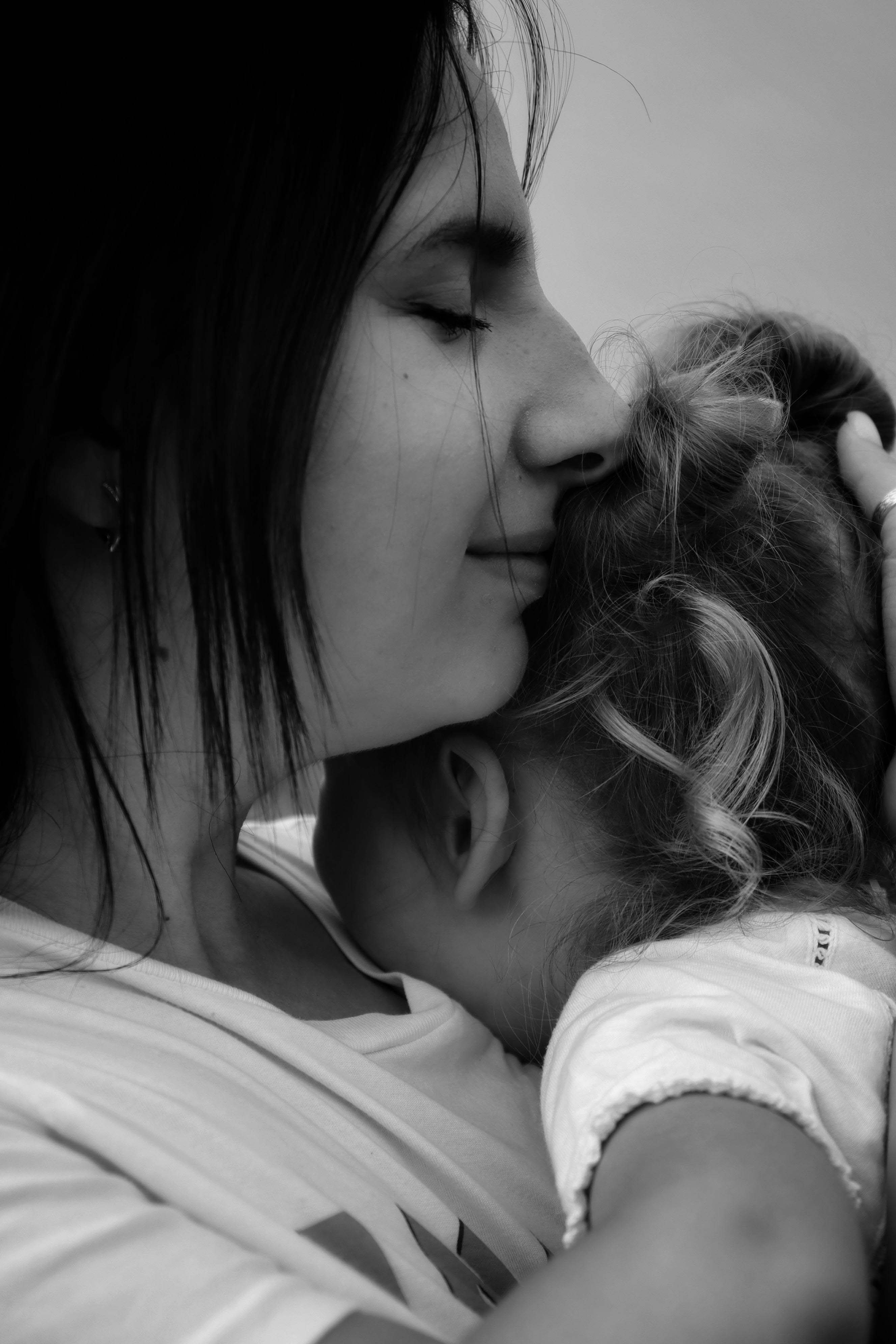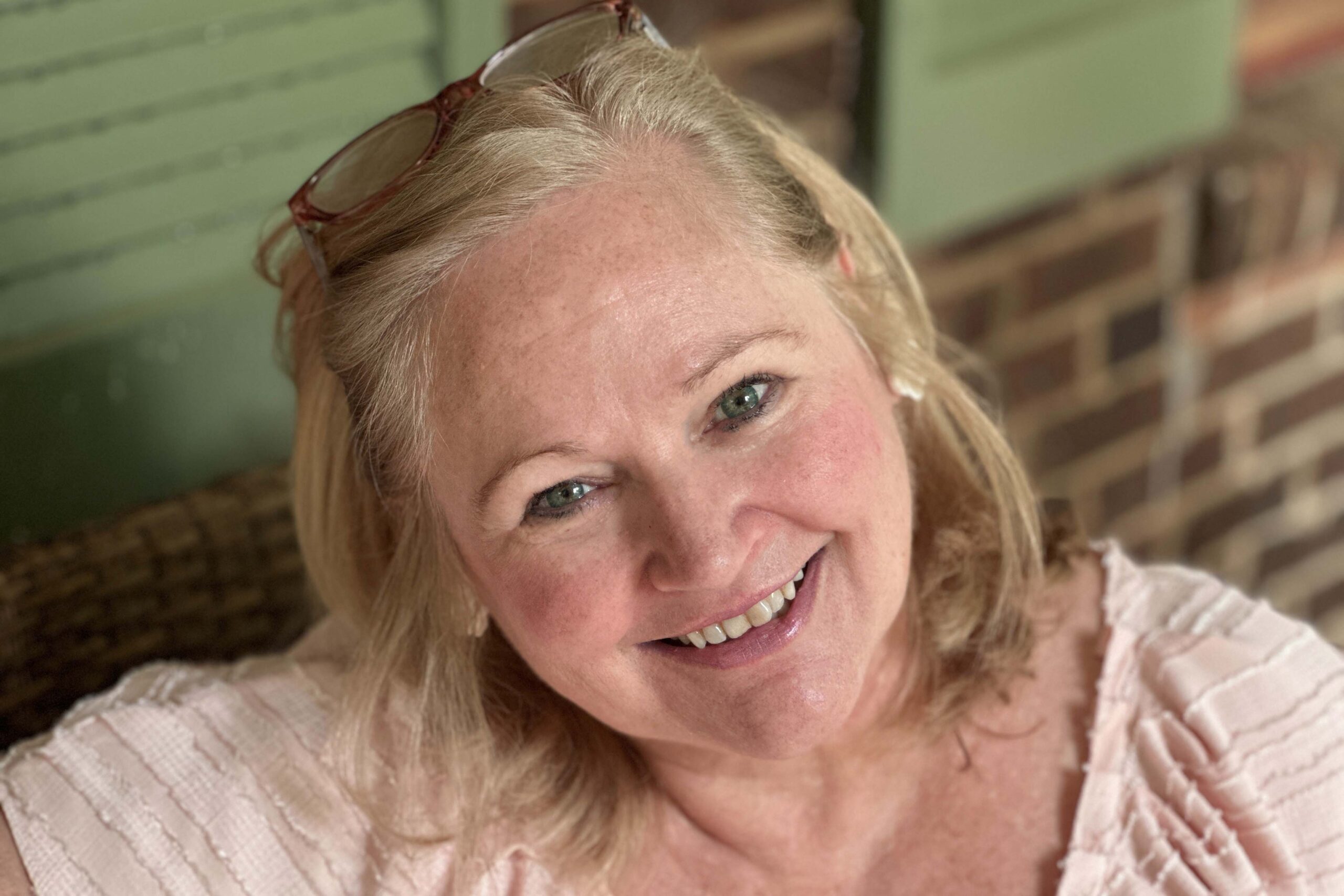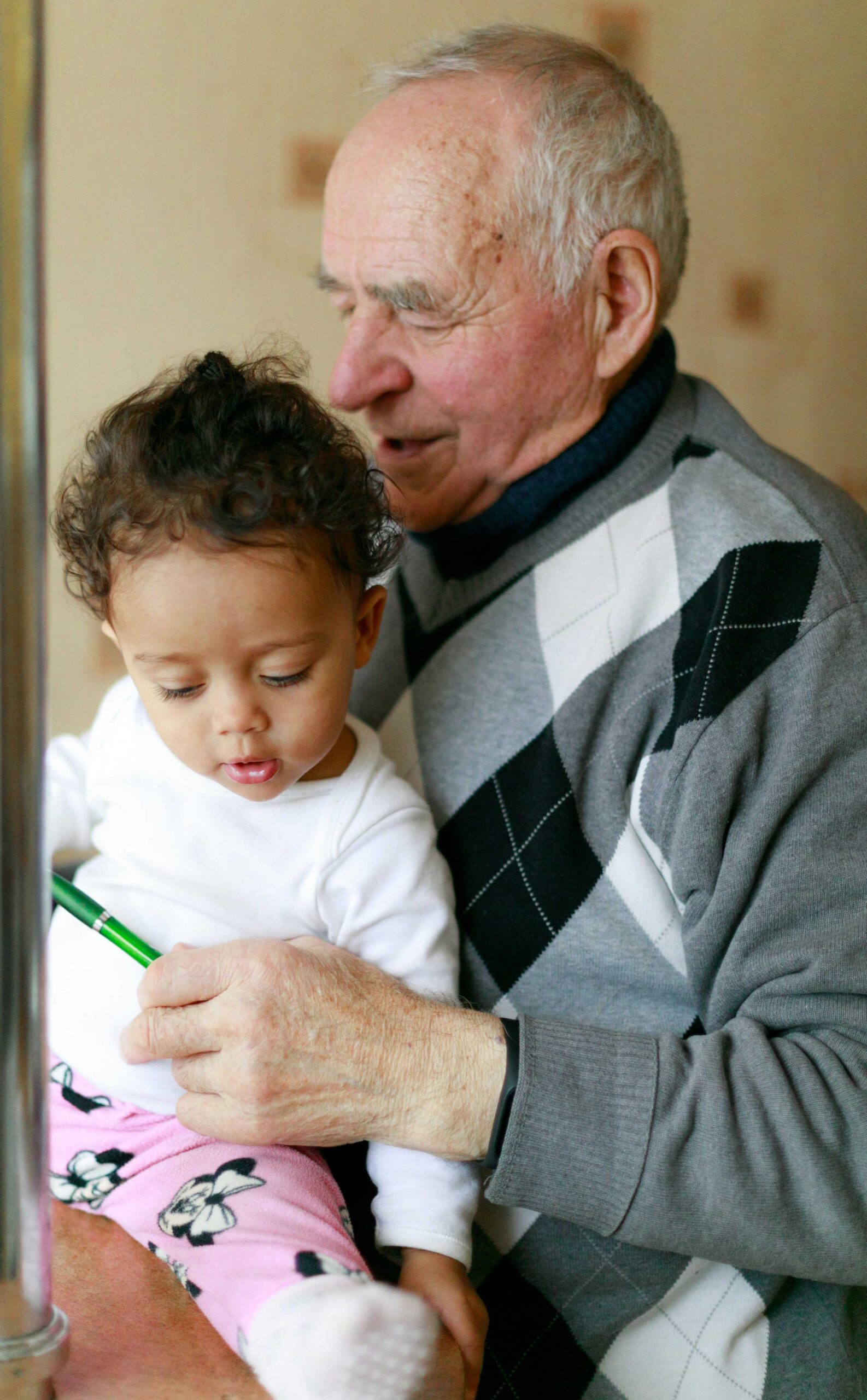Located in Cary, NC. I provide Online Therapy for moms in 42 + US States & Throughout NC, including Raleigh, Durham, Chapel Hill, Charlotte, Greensboro, Winston-Salem, High Point, Asheville, and Wilmington.

Find Relief From Your Emotions
Your feelings of grief can feel like carrying a weight that never lifts—I remember taking “grief naps.” With therapy, I can help you find relief from your overwhelming emotions, making space for you to experience feelings of peace, healing, and even moments of joy again.

Build Stronger Relationships
Are you feeling disconnected from your partner, or kids, or friends ? Through healing, you’ll learn how to rebuild trust, communicate your needs to others, and strengthen your relationships—without feeling like you have to hide your pain. I can help you learn how to share your grief and tell others what you need in a way that is comfortable both for you and them.

Get a Renewed Sense of Who You are
Your grief can make you feel lost, like a part of you is missing. With grief counseling, you’ll rediscover who you are beyond the pain—finding purpose, joy, and a new way forward while still honoring what you’ve lost. Remember, healing is not forgetting.
You want to heal from your loss, but you’re not sure how... It is hard enough just to get through each day.

Grief can feel like an unpredictable storm—crashing over you in waves of sadness, anger, or numbness. Everyday tasks feel impossible, and even brief moments of happiness can be met with guilt or an acute awareness of what’s missing.
You may feel profoundly alone, struggling to connect with others. Even well-meaning words of comfort can feel hollow as if no one truly understands the depth of your loss.
And then there are the moments that take you by surprise. The ones where grief sneaks up on you when you least expect it—when you thought you were doing okay, only to be pulled under again.
If this sounds familiar, you are not alone. There is no “right” way to grieve, but you don’t have to go through it without support. Grief counseling will help you recover and heal. It will help you not get stuck in your feelings. I know you don’t want to “forget” but let’s help you remember in a way that you can begin to reconnect with others and join life again.
Grief Doesn’t Just Affect Your Heart—It Affects Everything
It is exhausting. You try to hold it together for your kids, at work, and around friends—but bottling it up only leaves you drained. Your life might feel like Sisyphus rolling the boulder up the hill just to have to do it again the next day.
You don’t want to burden others by talking about it, and when you do, people either don’t know what to say or say things that feel frustrating or unhelpful.
Your relationships might feel strained. Maybe you’re withdrawing because you can’t put your feelings into words, and you’re not sure anyone really wants to hear them anyway.
Even simple tasks can feel overwhelming. Your to-do list keeps growing—or maybe you’ve stopped trying to keep up altogether.
You might feel lost, disoriented, and unmoored, unsure of how you’re supposed to move forward when everything feels different.
Grief seeps into everything—work, relationships, even your physical health.
At work, it’s hard to focus or stay motivated when your mind keeps drifting back to your loss. Even small tasks feel like too much.
You may be more irritable or emotionally reactive, worrying that you’re pushing away the people you care about most.
Physically, grief takes its toll—fatigue, sleep issues, and even a weakened immune system can make daily life even harder to manage.
And over time, unprocessed grief can create a ripple effect, making it difficult to feel joy, stay productive, or maintain a connection to the world around you.


Find Support, Find Strength, Find Peace
You don’t have to navigate grief alone. In a safe and supportive space, you’ll learn how to process overwhelming emotions, put words to feelings that seem impossible to explain, and begin to make sense of your loss.
In therapy, we’ll explore your unique grief journey, helping you understand that healing isn’t about “getting over it”—it’s about learning to carry your loss in a way that allows you to move forward with peace.
Grief counseling will help you:
-
Stop judging yourself for how you’re grieving and find self-compassion.
-
Reconnect with others, build new relationships, and rebuild strained ones so you no longer feel so alone.
-
Identify coping strategies to manage grief’s emotional, physical, and relational challenges, making it easier to navigate daily life.
Loss changes you, but it doesn’t have to leave you feeling lost forever. Therapy gives you the tools to heal, grow, and move forward—without leaving behind the love you’ve lost.


Personalized Grief Therapy that Understands you
Grief is deeply personal, and your healing journey should be too. With private, one-on-one therapy, you’ll receive support tailored to your unique experience so you can process emotions in a way that feels right for you.
Guidance for Managing Guilt & Anxiety
Grief comes with so many emotions, but guilt and anxiety can be some of the hardest to carry. Together, we’ll work through self-blame, overwhelming thoughts, and fear of moving forward, so you can find peace without feeling like you’re leaving anything—or anyone—behind.
Help Rebuilding After Loss
Grief can make it feel impossible to imagine a future without pain, but healing doesn’t mean forgetting. Therapy will help you honor your loved one, reconnect with life, and rediscover your sense of self—without pressure, judgment, or timelines.
It’s not about “getting over” the loss but learning how to integrate it into life in a way that fosters healing and growth. Therapy will help you make sense of the pain of your loss and often find meaning in the process.

Margot A. Holloman, Licensed Psychologist
“For over 20 years, I’ve helped more than 200 clients navigate the deep pain of grief, guiding them toward healing and peace. Some have lost babies, children, partners, or friends. Grief often leaves you feeling like life can never get better, and you will never feel better.” It can. Let me help.
How It Works – No Matter Where You’re Starting
Whether it’s your first time in therapy or you’ve been before, I make the process easy and comfortable so you can start feeling better, fast.
THE GRIEF RECOVERY TOOLKIT
Step 1: Schedule a Free Consultation
We’ll start with a free, no-pressure consultation, where you can share your story, ask questions, and see if grief therapy feels right for you. This first step alone can bring relief—just knowing you’re not alone.
Step 2: Get a personal Grief Healing RoADMAP
Grief is different for everyone. Together, we’ll create a plan that helps you process emotions, manage anxiety, and find ways to heal—at your own pace. No pressure, no expectations—just the support you need
Step 3: ONGOING SUPPORT AND LASTING EMOTIONAL PEACE
Through regular sessions, we’ll work through grief’s ups and downs, helping you rebuild a sense of self, reconnect with others, and find peace without guilt. You don’t have to carry this alone.

With practical tools and insights to help you navigate your healing journey
- I will teach you grounding techniques to manage overwhelming emotions. You will also learn deep breathing and mindfulness exercises to stay present during intense sorrow
- You will learn healthier ways to express your feelings, such as journaling, creative outlets, or sharing your grief openly with loved ones
- Therapy will help you overcome guilt and regret by exploring self-compassion and identifying your unhelpful thought patterns
- I will also teach you self-care techniques that will help you set boundaries with others who may not understand your grief. This will help you protect your emotional energy while caring for essential relationships
- You will also create rituals or practices to honor the person or thing you feel you have lost. This might include writing letters, creating a memory book, or celebrating meaningful anniversaries
Over time, You will gain confidence in your ability to navigate life’s challenges while carrying your grief, learning to find joy and connection along with your loss
Why Specialized Therapy for Grief and Loss in Moms?
Grief Specialties
Motherhood was supposed to be filled with joy—but instead, it’s brought grief and loss.
Maybe you’ve experienced miscarriage, infertility, or a late-term pregnancy loss, and the devastation has left you feeling hopeless about the future.
As a new mom, you might be mourning the loss of your freedom and identity, struggling to adjust to a life that looks nothing like you expected. The relationship you once had with your partner may feel different now, adding another layer of grief.
Pre Pregnancy and Pregnancy Losses Including:
- Miscarriage
- Mid to Late Term Pregnancy Loss
- Infertility Challenges
- Loss of Body Image
- Loss of Body Autonomy
If these sound like you, please take a look at the Journey to Motherhood Page.
Postpartum Losses Including:
- Loss of Identity (as a Career Woman etc.)
- Loss of Freedom
- Loss of Autonomy (You are caring for two now)
If these sound like you, please take a look at the New Moms: Postpartum Depression and Anxiety Page.
If you are concerned about how grief may be impacting your parenting, causing depression, or mom burnout, please see my Mom Burnout and Depression Page.
And while you’re still raising your children, you might find yourself caring for aging parents—or even grieving the loss of one. Yes, these changes are a normal part of life, but that doesn’t make them any easier. You may feel overwhelmed, stretched thin, and without the support of a parent to turn to. See my Seasoned Mothers Page.
Or maybe you never had reliable parents to lean on in the first place. If you never really had a mother (or father) and you grew up in a dysfunctional family for any reason, including parental neglect or alcoholism, drug use, mental illness, etc., see my Childhood Trauma and Dysfunctional Families Page.
If you also have difficulty with anxiety or ADHD, please see my Anxiety Specialty Page and my ADHD Specialty Page.
Perhaps you’ve lost a partner, a sibling, or a close friend, and you have no idea how to move forward. People say to “give it time,” but time alone isn’t making the pain any easier to bear. Reach out to me, there is no need to do this alone.
Therapy Specialties

Therapy for Overwhelmed Moms Managing ADHD: You Can Find Balance and Peace

Healing for Moms Who Grew Up In a Dysfunctional Family

Support and Healing for Grief and Loss in All Stages of Motherhood

Find Calm: Therapy for Moms Struggling with Anxiety

Journey to Motherhood: Unexpected Challenges with pregnancy, infertility, and Miscarriage

New Moms: Postpartum Depression and postpartum Anxiety

The Middle Years: Parenting, Depression, and Preventing Burnout

Seasoned Mothers: Empty Nests and Parent-Child Relationships
Frequently Asked Questions
I am unsure if I want to let go of my feelings. Is that ok?
Yes! Sometimes, letting go of grief can feel like letting go of the person or thing you have lost and are missing so much… Yes, it is okay not to be ready to let go yet. Often, not wanting to let go of our feelings means we need more time and to do more things that honor and validate our feelings.
What if I don’t feel like talking about it or find it too hard?
I will give you the time and the support you need, and I will never push you to talk about things until you want to. Simply let me know how you feel, and I will hear you. It can wait. A crucial part of therapy is for you to feel comfortable and safe with the process. Over time, good therapy should help you feel safer and more comfortable with allowing your feelings to surface, but you shouldn’t ever feel pressured to do this before you are ready.
How do I know if I need therapy for Grief?
If you feel stuck in overwhelming sadness, anger, guilt, or despair, that doesn't lessen over time. Suppose you are having difficulty functioning in your daily life, feeling isolated, continuing to avoid reminders, or denying the reality of what happened. In that case, these may all be signs of needing support. Also, if you are experiencing physical symptoms, excessive anxiety or depression, or thoughts of self-harm, then it is time to reach out for help. Suppose the circumstances of your loss were particularly traumatic (e.g., sudden or violent death, pregnancy loss, or losing someone central to your sense of identity). In that case, this also makes it more likely you should reach out for help through grief counseling.
What Kind of Losses can Grief Therapy Help With?
Grief therapy can help with many different kinds of losses, including the death of a loved one, pregnancy loss, or the end of a significant relationship. It also supports individuals grieving non-death losses, such as losing a job, a pet, or a sense of identity due to major life changes like illness or divorce. It can address complicated grief stemming from sudden or traumatic events, such as accidents or violence. It can also help with ambiguous losses, such as estrangement or caregiving for someone with a degenerative illness. The goal is to process the loss, manage difficult emotions, and rebuild a sense of meaning and purpose.
What if my Loss Happened a long time ago?
If your loss happened a long time ago but still feels unresolved, grief therapy can help you process the lingering emotions and address how it continues to affect your life. Grief doesn’t always follow a linear timeline, and sometimes, the pain of a past loss resurfaces due to life changes, anniversaries, or unprocessed feelings. Therapy provides a safe space to explore those emotions, even if they’ve been buried for years, and helps you understand how the loss has shaped your experiences and relationships. By working through the unresolved grief, you can find relief, develop new coping strategies, and create space for healing and growth. It's never too late to seek support and care for your emotional well-being.
